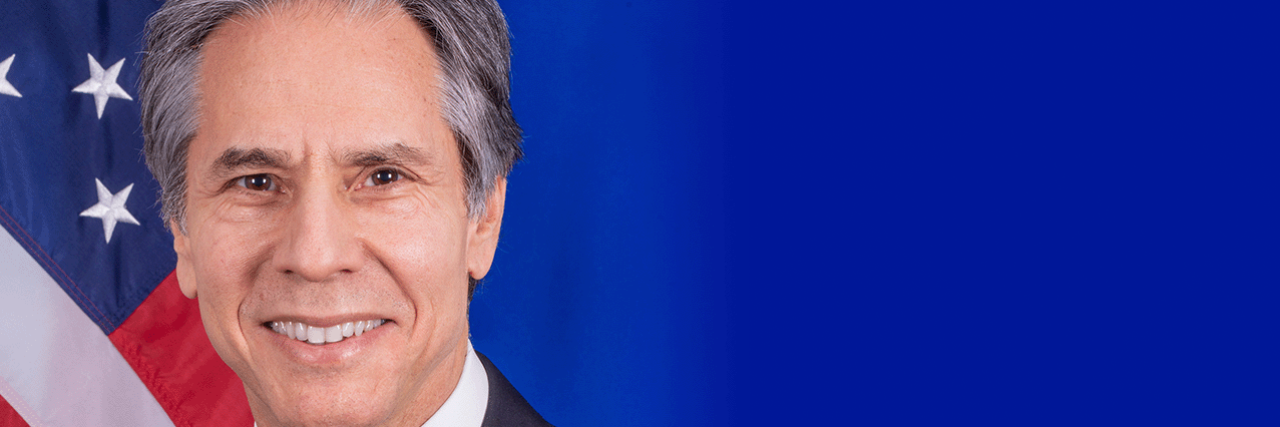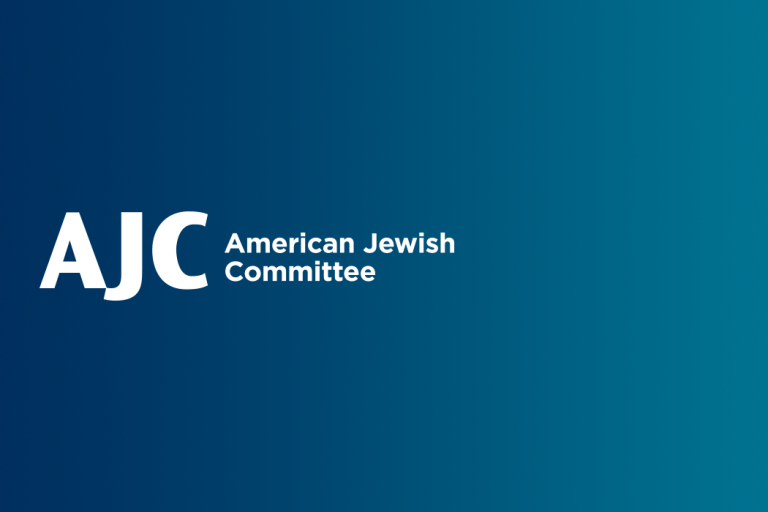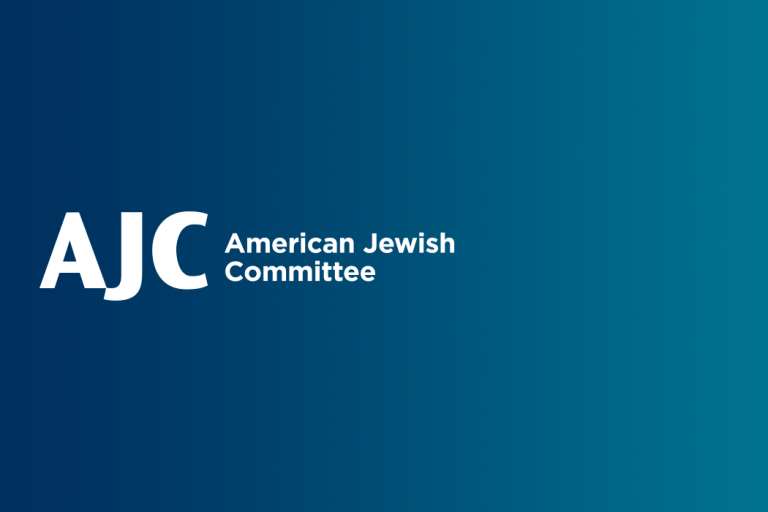June 13, 2022 — New York
U.S. Secretary of State Antony Blinken, addressing the American Jewish Committee (AJC) Global Forum today, praised the leading global Jewish advocacy organization’s leadership on key American foreign policy issues. AJC’s missions “align with many of the United States top foreign policy priorities,” he said.
“I’d like to thank AJC for its enduring partnership, for its ongoing work, and for all I know that we’ll continue to do together” to support Ukraine, to combat antisemitism worldwide, support Israel’s security, prevent Iran from developing nuclear weapons, and expand Arab-Israeli normalization and peace, Blinken remarked in a video address from the State Department.
“We are so grateful for AJC’s leadership in standing up for democracy and human rights around the globe, as we see in the recent solidarity with, and support for, the people of Ukraine, as they defend their nation against the Russian government’s war of brutal aggression,” the secretary of state said. Pointing out that this is consistent with AJC’s longstanding advocacy for Ukraine, Blinken observed that “in 1991, AJC was the first Jewish organization outside Ukraine to call on President George H.W. Bush to recognize the country’s independence and has been a staunch supporter of a free and democratic Ukraine ever since.”
Noting the recent confirmation of Deborah Lipstadt as the U.S. Special Envoy to Monitor and Combat Antisemitism, an ambassadorial post reporting to the secretary of state, Blinken pointed out that “for more than a century AJC has been at the forefront of the fight against antisemitism and for democracy.”
He emphasized that “combating antisemitism abroad is not just the special envoy’s job. It is the job of the entire State Department, one that we — and I — take very seriously.” And he vowed to the AJC Global Forum audience that “the United States is committed to working by your side to tackle the alarming rise in antisemitism around the world.”
“History has shown that hatred of Jews often goes hand in hand with hatred of other groups. And in places where antisemitism and Holocaust denial spread, repression and democracy backsliding are often not far behind,” said Blinken.
“That is why AJC’s commitment to fight all forms of religious intolerance is so critical. That is why this Administration has made combating antisemitism and all forms of bigotry a top priority for our domestic and foreign policy,” he added.
On U.S.-Israel relations, Blinken declared that “the United States commitment to Israel’s security remains ironclad,” and that dealing with Iran’s nuclear program together is a shared top priority. “We are determined that Iran will never acquire a nuclear weapon and we continue our close coordination with our Israeli partners to prevent Iran from developing one.’’
Turning to the continuing, positive evolution of relations between Israel and a growing number of Arab countries, Blinken observed that “normalization is becoming the new normal in the region.”
The Negev Summit in March, where Blinken met with the foreign ministers of Bahrain, Egypt, Israel, Morocco, and the UAE, “was only the latest example of how once impossible things have become possible,” he said. The Administration is “committed to maintaining the momentum of the Abraham Accords, and is “working tirelessly to expand normalization with Israel’s neighbors.”
Other examples he cited include Morocco and Israel agreeing to open embassies in Rabat and Tel Aviv; Prime Minister Bennett becoming the first Israeli prime minister to visit Bahrain and the United Arab Emirates; Israel and Bahrain signing over a dozen agreements to deepen economic ties; and a Holocaust memorial exhibit opening in Dubai.
In addition, the U.S., Israel, and the UAE recently held the inaugural meeting of the trilateral religious coexistence working group, which will bring together governments and religious figures from across the region “to counter intolerance and hatred, including antisemitism,” he said.
“If this sounds like the work of AJC, it is no coincidence,” said Blinken. “Fostering these kinds of ties has been one of AJC’s goals for decades.”
Regarding the Israeli-Palestinian peace process, Blinken said the administration is working to “preserve our longstanding goal of reaching a negotiated two-state solution.” Meanwhile, the U.S. is seeking “tangible improvements” in the lives of the Palestinians.
The secretary of state saluted “the purposeful leadership” of AJC CEO David Harris, including in fostering new relationships in the Middle East. “David, your dedication, your leadership, has been indispensable to this institution, to its relationship with countless administrations, to Jewish communities worldwide,” said Blinken. “I have benefited directly from your ideas, your counsel, and your support. Your service is the embodiment of Tikkun Olam.”
The secretary also extended a warm welcome to Rep. Ted Deutch, who he called “a friend,” and who will succeed Harris as AJC CEO on October 1.
Blinken last addressed the AJC Global Forum in 2015, in Washington, D.C. as deputy secretary of state. ‘‘You’ve been called the State Department of the Jewish people, a title so apt I may start giving out some assignments today.
AJC Global Forum, taking place June 12-14 in New York City, is the signature annual event of the leading global Jewish advocacy organization. It brings together thousands of participants from across the United States and dozens of countries around the world.


